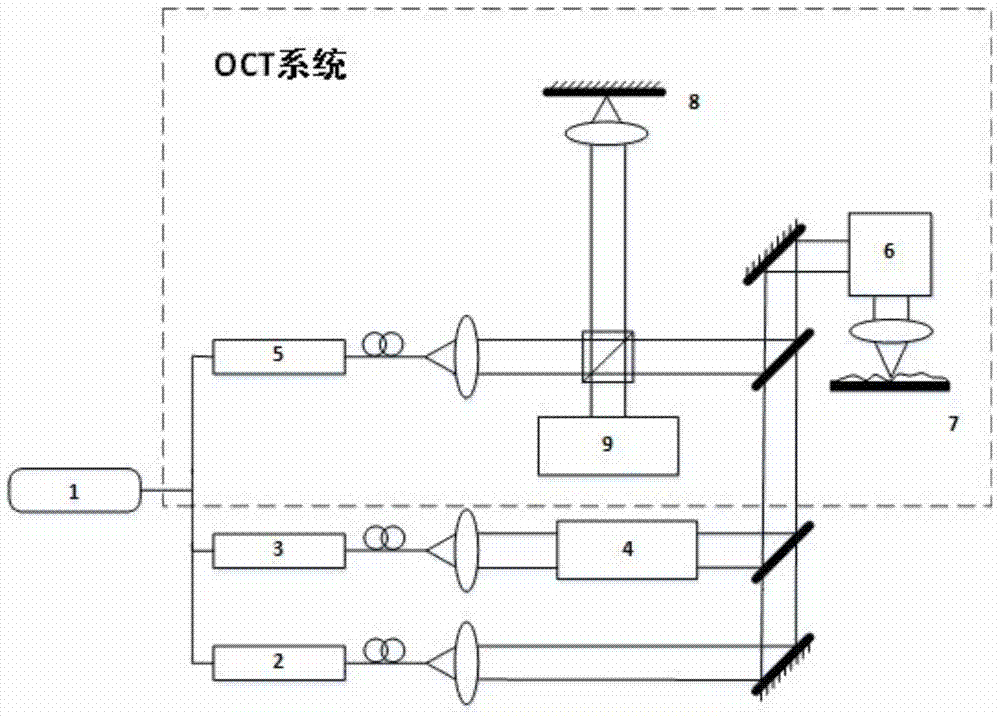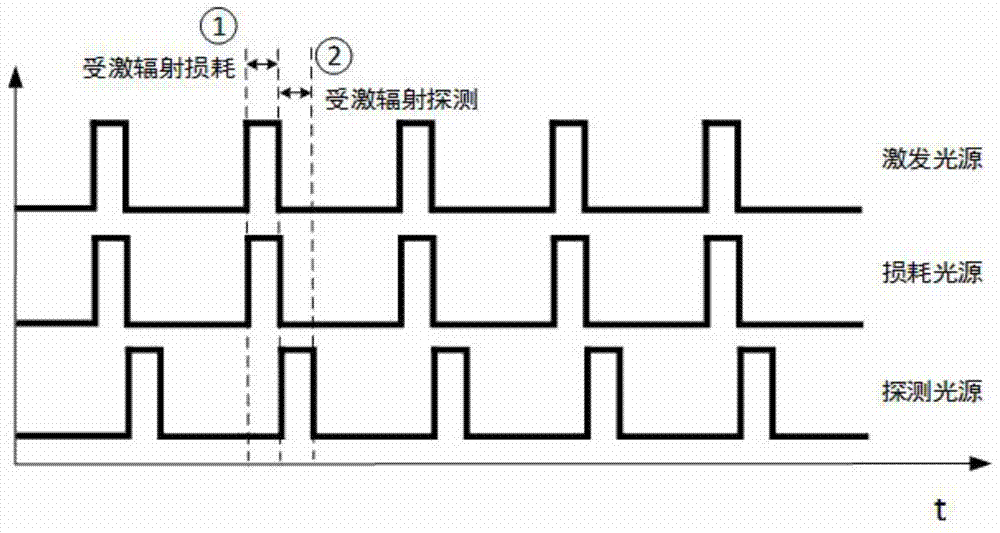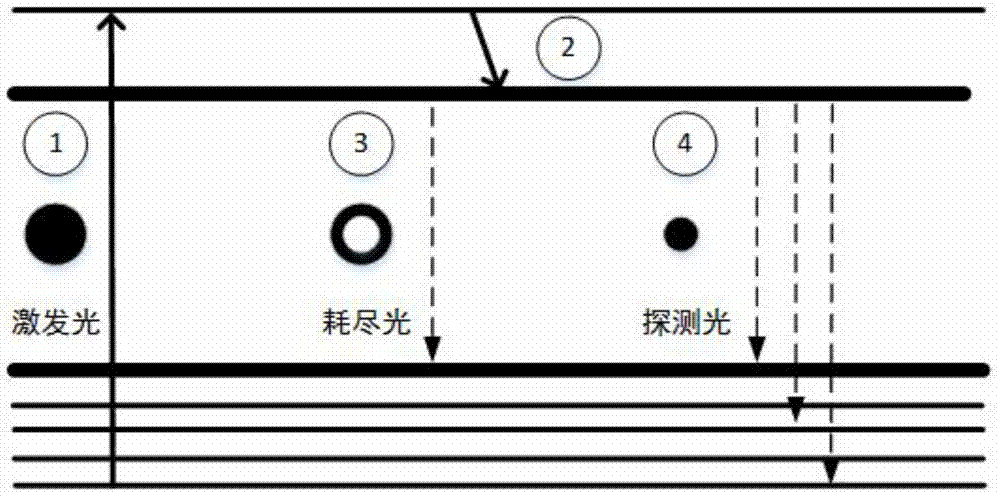A nano-oct imaging method and system based on broadband stimulated radiation
A technology of stimulated radiation and imaging methods, applied in the field of nano-OCT imaging methods and systems, can solve problems such as undetectable and weak autofluorescence, and achieve the effects of real-time observation, ultra-high lateral resolution, and reduced lateral size
- Summary
- Abstract
- Description
- Claims
- Application Information
AI Technical Summary
Problems solved by technology
Method used
Image
Examples
Embodiment Construction
[0025] The present invention will be further described below in conjunction with the accompanying drawings and implementation examples.
[0026] A nano-OCT imaging method based on broadband stimulated radiation:
[0027] 1) Turn on the excitation light to irradiate the sample, so that the sample is in an excited state;
[0028] 2) When the excitation light is turned on, the lost light is turned on at the same time; the lost light is modulated by the beam to form a transverse hollow telephoto spot; the lost light is irradiated on the sample, and the excited state electrons located on the periphery of the exciting spot will pass through the stimulated radiation. way to return to the ground state, and the excited state electrons near the center of the excitation spot will remain in the excited state;
[0029] 3) Turn off the excitation light and loss light, turn on the probe light, and send the electrons left in the excited state back to the ground state by means of stimulated r...
PUM
 Login to View More
Login to View More Abstract
Description
Claims
Application Information
 Login to View More
Login to View More - R&D
- Intellectual Property
- Life Sciences
- Materials
- Tech Scout
- Unparalleled Data Quality
- Higher Quality Content
- 60% Fewer Hallucinations
Browse by: Latest US Patents, China's latest patents, Technical Efficacy Thesaurus, Application Domain, Technology Topic, Popular Technical Reports.
© 2025 PatSnap. All rights reserved.Legal|Privacy policy|Modern Slavery Act Transparency Statement|Sitemap|About US| Contact US: help@patsnap.com



